The Master’s Entry to Practice (MEP) program is an efficient way to become a registered nurse while also achieving a Master of Science in nursing.
The graduate-level MEP program is a direct pathway to the nursing profession for those who have already earned a bachelor's degree. It is a perfect complement to St. Bonaventure's Bachelor of Science in
health science program.
Accepted, qualified non-nursing baccalaureate-prepared students can complete the 72-credit program in 6 semesters of year-round, full-time study. This program will challenge adult learners to practice ethical and critical decision making in the classroom, clinical arena, and community to become nurse generalists and leaders of the future.
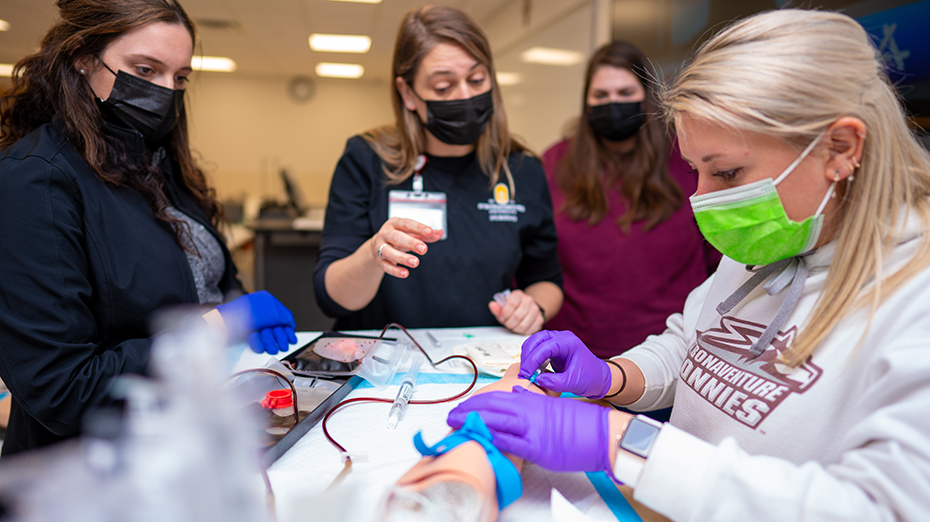
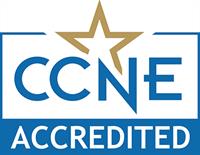
The MEP program is accredited by the Commission on Collegiate Nursing Education (http://www.ccneaccreditation.org).
Officially recognized by the U.S. Secretary of Education as a national accreditation agency, the Commission on Collegiate Nursing Education (CCNE) is an autonomous accrediting agency, contributing to the improvement of the public's health. CCNE ensures the quality and integrity of baccalaureate, graduate, and residency programs in nursing.
A hands-on curriculum targeting outcomes
The curriculum focuses on medical knowledge, nursing theory, continuous quality improvement, shared fiscal responsibilities, and technology integration. Hands-on practice prepares graduates to provide quality and value-based care that aims to promote positive patient outcomes through heightened patient safety and health care team collaboration.
Graduates will be prepared for the rigorous nursing career ahead by becoming emotionally intelligent providers who practice with empathy, respect, integrity, and as global citizens.
A St. Bonaventure market study showed a "moderate and growing demand" regionally for master's-level nurses, with more than 2,000 relevant job postings in May of 2020 alone for the five county area surrounding St. Bonaventure.
Learn to be an emotionally intelligent provider
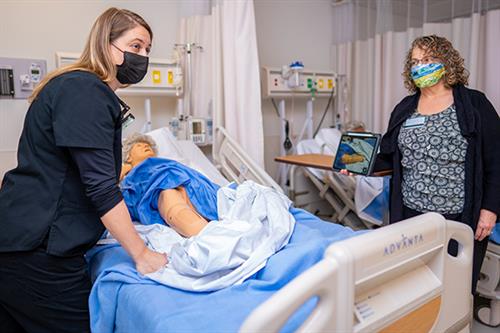 A hallmark of the MEP program is its focus on equipping students with emotional intelligence, which is recognized as an important tool in ensuring effective nurse-patient relationships and in preventing career burnout among healthcare professionals.
A hallmark of the MEP program is its focus on equipping students with emotional intelligence, which is recognized as an important tool in ensuring effective nurse-patient relationships and in preventing career burnout among healthcare professionals.
Like all occupations focused on service to the public, nursing involves emotionally intense work. Studies show that those who are able to regulate their emotions as they impact themselves and others are better-equipped to attain a high level of job satisfaction.
Emotional intelligence (EI) promotes considering our own and others' emotions before responding to conflict. It rests on four emotional-regulating pillars — self-awareness, self-management, social awareness, and relationship management — designed to support healthy relationships and personal balance.
Dr. Connie Perkins, founding director of nursing at SBU, is an emotional intelligence coach who has built EI into the curriculum of all nursing programs. Her article on EI in "American Nurse," the magazine of the American Nurses Association, provides more detail.
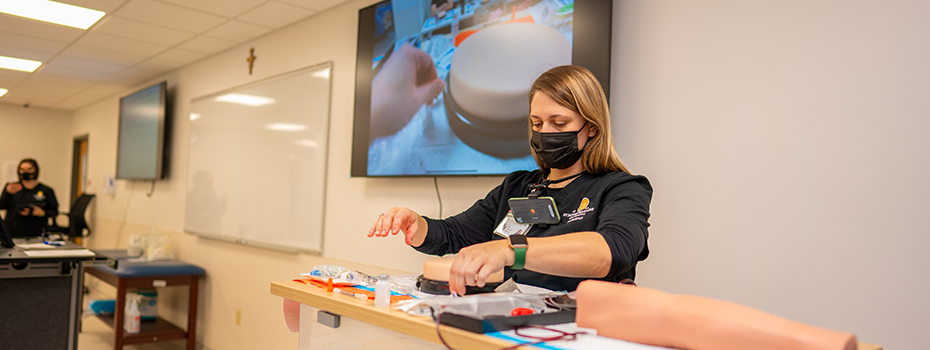 iPad equipped students learn from Apple certified instructors
iPad equipped students learn from Apple certified instructors
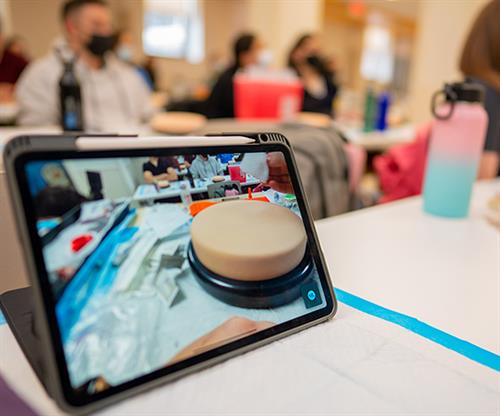
Instructors in the MEP program have earned Apple Teacher certification, attesting to their commitment to utilize Apple iPads and products to enhance students' learning experiences. Apple Teacher certification requires completion of 16 hours of professional development and the acquisition of foundational skills on iPad, Mac and Apple apps.
All Master's Entry to Practice students are equipped with an iPad as part of the program's commitment to put technology in the hands of students. The goal is to have students use the device as a learning tool and to carry it into the clinical arena as a way to help educate patients as well.